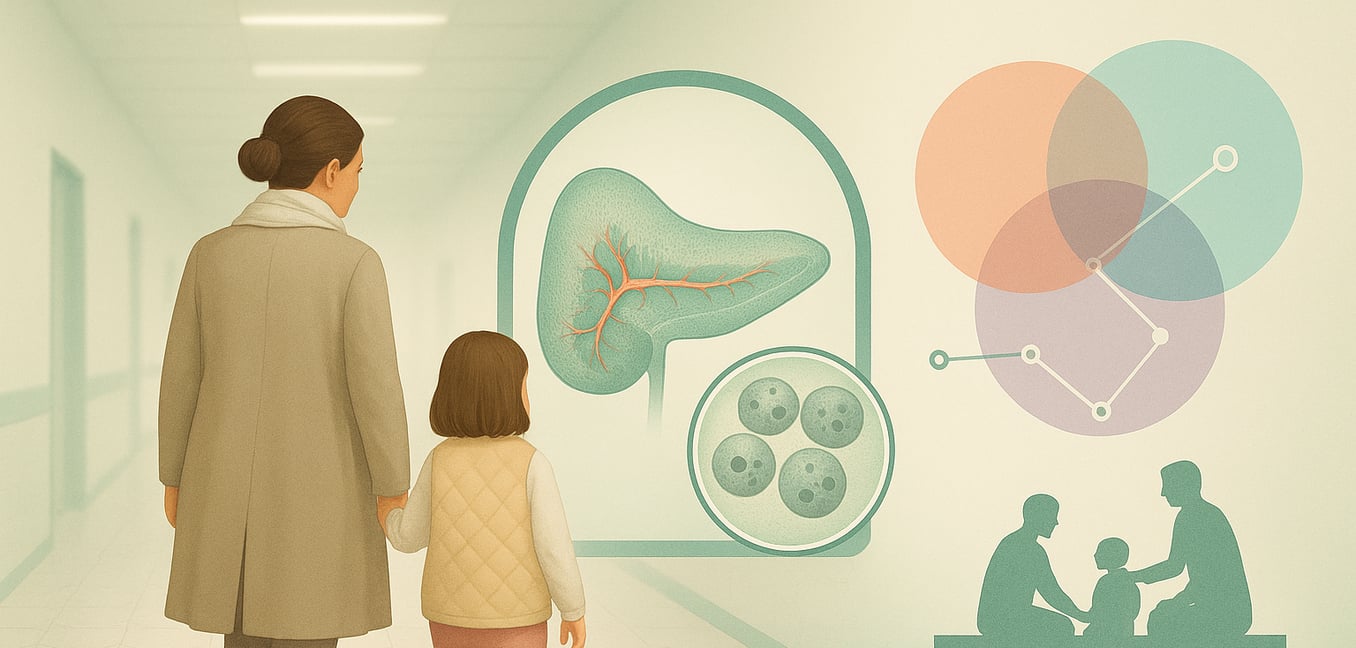The Overwhelming Start: Why Support is Crucial
A neuroblastoma diagnosis begins a difficult journey for any family. The process starts with a series of urgent and complex tests to confirm the cancer, understand its specific characteristics, and see if it has spread. Your medical team will use imaging like CT or MIBG scans, urine and blood tests, and a tumor biopsy to build a complete picture of your child's condition.
This diagnostic phase is a whirlwind of new medical terms, procedures, and frightening uncertainty. As doctors work to determine the cancer’s stage and risk level, parents are often left feeling overwhelmed and isolated. It is precisely at this moment that the need for a strong support system becomes clear. Fortunately, help is available from many sources, starting within the hospital walls.
Support Within the Hospital
Hospitals specializing in pediatric cancer offer a dedicated team of professionals focused on supporting your child and family through every step of this experience. This network is designed to address the emotional, practical, and developmental needs that arise during treatment.
- Child Life Specialists: Experts in child development who use play and age-appropriate language to explain procedures and reduce fear. They help maintain a sense of normalcy and give your child a feeling of control during their hospital stay.
- Social Workers and Psychologists: Your go-to resource for navigating logistics and emotions. Social workers help with insurance, financial aid, and housing, while psychologists offer counseling to help your entire family cope with stress and fear.
- Nutritionists and Rehabilitation Therapists: These specialists address the physical toll of treatment. Dietitians create plans to manage side effects and ensure proper nutrition, while physical and occupational therapists help maintain strength, coordination, and daily living skills.
The Power of Peer Support Groups
Connecting with other families who have faced a neuroblastoma diagnosis provides a unique and powerful form of support. These groups create a community where shared experiences foster a deep sense of understanding that is hard to find elsewhere.
- Feeling understood and less alone: In a support group, you are with people who know the unique vocabulary and emotional challenges of a neuroblastoma diagnosis. Sharing your story with someone who has been there provides profound validation and reduces feelings of isolation.
- Gaining practical tips: Learn from the lived experiences of other parents. Get invaluable advice on managing side effects, navigating insurance, and advocating for your child’s needs in a way that medical pamphlets cannot teach.
- Finding hope for the future: Seeing children who have completed treatment and are now thriving serves as a powerful reminder that there is a future beyond cancer. These stories of resilience can be a beacon of light during the most uncertain times.
Accessing Community Resources
Beyond your hospital team and peer groups, a wider network of non-profit organizations stands ready to provide another layer of support. These foundations were created to ease the burdens that families face during a pediatric cancer diagnosis.
- Financial assistance programs: Many organizations offer grants to help cover non-medical costs like travel, lodging, and household bills. This relief can alleviate a major source of stress, allowing you to focus on your child’s care.
- Wish-granting organizations: These groups create positive, lasting memories that provide a much-needed break from the relentless cycle of treatment. A special experience to look forward to can be a powerful source of hope and joy for your entire family.
- Advocacy and research foundations: Connect your family to the larger fight against neuroblastoma. These groups fund innovative research and clinical trials while serving as a trusted source for the latest treatment information.
Advocacy and Specialized Services
Beyond the primary oncology team, specialized services exist to help you advocate for your child’s unique needs and navigate the complexities of their care journey. These services ensure your child receives holistic support that addresses every aspect of their well-being.
- Educational advocacy: An educational liaison can help create a formal plan with your child’s school (like a 504 Plan or IEP). This ensures accommodations are made for things like fatigue, missed class time, and cognitive side effects from treatment.
- Survivorship clinics: After treatment ends, these clinics provide specialized, long-term follow-up care. They proactively monitor for and manage potential late effects of treatment, ensuring your child not only survives but thrives into adulthood.
- Palliative care teams: This team provides an extra layer of support focused on quality of life at any stage of illness. This care is given alongside curative treatment to manage symptoms like pain and nausea, and it is not the same as end-of-life care.










